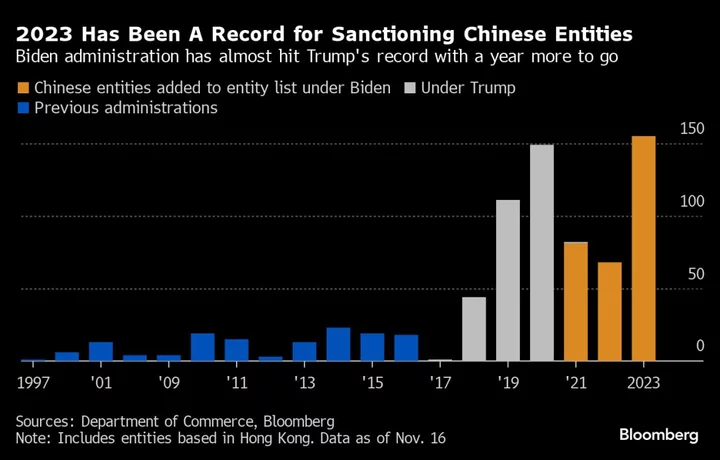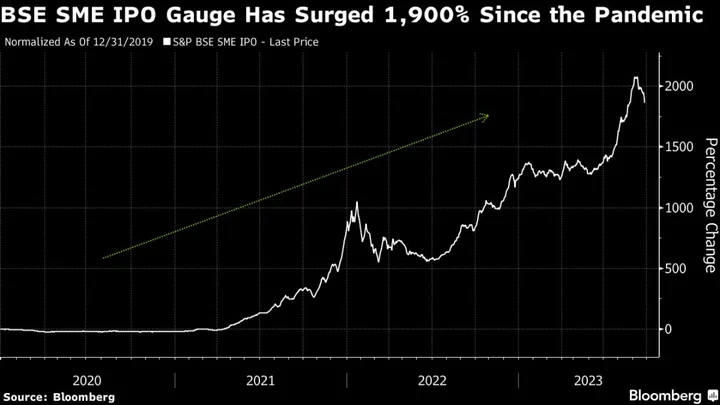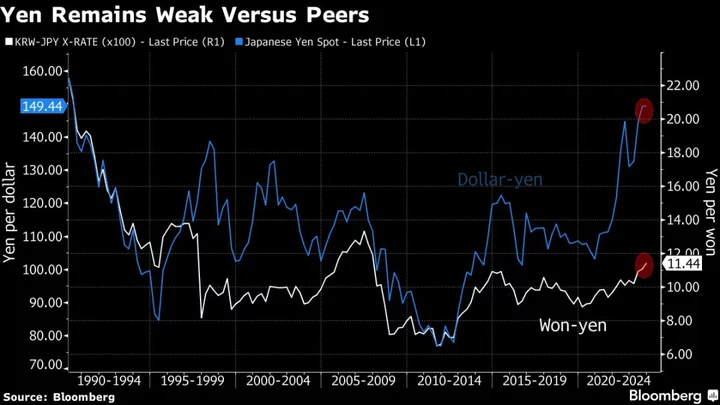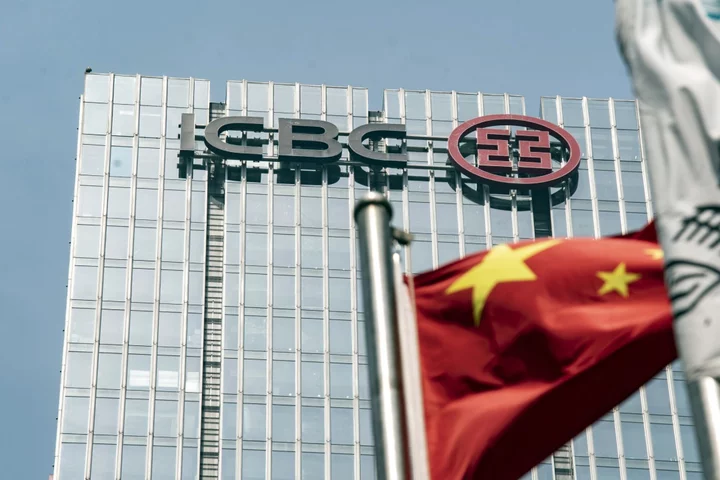Greek stocks surged and government bonds rallied as strong election support for market-friendly Prime Minister Kyriakos Mitsotakis put the nation on track to reclaim an investment-grade rating, 13 years after losing it.
The benchmark Athens Stock Exchange General Index jumped to its highest level in almost a decade, with a gauge of bank shares rising 16%. The premium investors demand to hold Greek 10-year debt compared with super-safe bonds of Germany fell to the lowest in more than a year.
Mitsotakis’s center-right New Democracy received almost 41% of the vote compared with about 20% for the leftist Syriza party of former premier Alexis Tsipras. While Mitsotakis fell short of achieving a majority in parliament, analysts are confident he will secure a single-party government in about a month, when fresh elections take place under a new law that gives the winning party extra seats.
Read More: Greek Premier Mitsotakis Set for New Term, Boosting Markets
Moody’s Investors Service, which ranks the country’s debt at Ba3 — three notches into junk — called the result “credit positive,” in a statement after the vote. The outcome increases the chance of continuity in fiscal and economic policies, Moody’s said.
Greece has undergone an economic transformation that’s seen gross domestic product recover close to where it was in 2010. The unemployment rate has more than halved from its peak of 28%, while the nation’s debt-to-GDP ratio dropped faster than any other European country last year.
“The outcome of the vote puts Greece firmly on track to secure an investment grade rating, possibly before the end of the year,” said Wolfango Piccoli, co-president of Teneo Intelligence in London. “While such an upgrade is largely priced in by investors, it will be an important moment as a stigma that has been in place since late 2010 will disappear.”
Greece’s 10-year government bond yield fell as much as 19 basis points to 3.83% on Monday. That narrowed their spread to equivalent German bonds — a widely followed risk measure — to 140 basis points for the first time since late 2021.
The cost of insuring against a Greek default over the next five years fell more than 10 basis points on Monday to 102 basis points, according to S&P Markit data.
Sean Kou, a strategist at Societe Generale in London, said the benchmark yield would fall 30 basis points if the nation regains an investment-grade score, and said the market seems to be anticipating the move.
“I believe rally will take place far ahead of the actual rating upgrade, probably between now and August,” Kou said.
S&P Global Ratings and Fitch Ratings rank Greece at BB+, one notch below investment grade. Their next scheduled reviews for Greece are on June 9, for Fitch, and Oct. 20, for S&P. Moody’s has an assessment scheduled for Sept. 15.
Kaspar Hense, a portfolio manager at BlueBay Asset Management, said he also expects Greece to win back an investment grade rating this year, but warned that much is already in the price. He pointed to the fact that the nation’s 10-year yield is now 30 basis points lower than equivalent Italian debt, which has an investment-grade score.
Poor liquidity also reduces the attractiveness of the Greek notes, said Hense, who was a private investor in Greece back in 2012.
“Liquidity overall is currently not good and unlikely to change any time soon,” he said. “For now, we — and we guess the market will too — demand a higher liquidity premium.”
Stocks Spike
On the equities side, all but three of the 60 stocks on the Athens index were up at the start of trading on Monday, with energy company Mytilineos SA, Motor Oil Hellas Corinth Refineries SA, and Public Power Corporation SA among the biggest gainers. The gauge is up 29% this year, largely outperforming the European benchmark.
A measure of Greek bank shares rallied the most since late 2020 and lenders’ bonds also rose.
Piraeus Bank’s additional tier 1 note advanced 2.6 cents to 81.2 cents, its strongest daily jump since early February, based on data compiled by Bloomberg. An AT1 bond by Alpha Bank’s holding company and a tier 2 note by Eurobank Ergasias also gained.
“We expect a sharp re-pricing of Greek assets in the coming weeks, as investors position for the compelling Greek thesis in the next few years,” Eurobank Equities strategists including Stamatios Draziotis said, citing the economy’s growth rate, attractive debt characteristics and cheap valuations. “We advocate that investors tilt towards a pro-risk stance, shifting their portfolio towards higher-beta stocks such as banks & PPC.”
--With assistance from Sotiris Nikas, Ksenia Galouchko and Tasos Vossos.
(Updates with comments, context and market moves throughout.)









